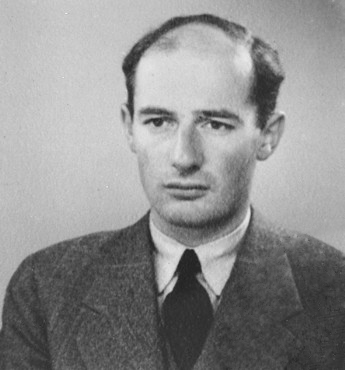The state of Israel is both small and young. Small, as in smaller than New Jersey, or Småland, if you are  thus inclined. And young, as in 64 years of independence, which is a very short time to develop a unified ethos and culture. Israel is a country where much of the older generation are immigrants from other parts of the world, bringing their old world-view with them to their new home. To give you an inkling of the range of countries people have immigrated from, I know an Israeli immigrant from Greenland and I have a good friend who has moved here from Surinam. Personally, I don’t think coming from Sweden is exotic, but others may disagree.
thus inclined. And young, as in 64 years of independence, which is a very short time to develop a unified ethos and culture. Israel is a country where much of the older generation are immigrants from other parts of the world, bringing their old world-view with them to their new home. To give you an inkling of the range of countries people have immigrated from, I know an Israeli immigrant from Greenland and I have a good friend who has moved here from Surinam. Personally, I don’t think coming from Sweden is exotic, but others may disagree.
Because you can pretty much traverse Israel from north to south in six hours, and from east to west in half an hour, we do not have regional dialects. Being such a new society, neither have we developed socio-economic dialects, like those in my former home-town Stockholm, or in My-Fair-Lady-London. What we do have is dialects based on parents’ origin. Jews from Arab countries have a better command of authentic Hebrew pronunciation. Europeans, like me, are rarely able to make all the correct guttural sounds.
It is cultural high-season in Jerusalem. There are lots and lots of activites going on at night, the Book-Week, the end of the Israel Festival, The Lights in Jerusalem Festival, the Special Needs Creative Week etc. Most of these activities are free and open to the public. However, on Sunday night I opted for a lesser known event. I went to see a play, performed by high-school students from the Shal-on School in Kiryat Gat. Kiryat Gat is a small town of almost 50,000 inhabitants, located about an hour south of Jerusalem. It’s one of those small development-towns that sprung up in the 50’s to accommodate the huge influx of above-mentioned immigrants. Mostly because of its relative proximity to the center of Israel, Kiryat Gat is considered a success. As far as development towns go, a success is a town with a growing population.
The play I saw, entitled “Heart of Stone, Heart of Flesh”, relates the story of the Swedish diplomat Raoul Wallenberg, who saved the lives of many thousands of Jews in Budapest during the later stages of WWII. The play is written by Eli Yoseph, an Israeli originally from England. It was performed on a real stage, in a real theater, but it was far from a professional production. The kids, who I guess are 17 years old, knew their lines, but other than that, they were everything you fear when you go to see amateur theater. Mostly, they were not what you would call naturals. The class beauty, who really was a stunning girl, showed up in many different roles, none of them convincing. Some of the kids had bad diction, some missed their cues. Most spoke in the kind of Israeli accent you have if your parents came from one of the Arab countries, which was not a perfect fit when playing out this very European story. One of the Nazi soldiers was played by a black Ethiopian Israeli. I hope Hitler I spinning wildly in his unmarked grave. Not only did he loose the war, the Jews now have their own, rather flourishing country, with black-Jewish immigrants performing as SS thugs in a high-school production.
This year has been designated by Sweden to commemorate 100 years since the birth of Raoul Wallenberg. There are two parts to the Wallenberg story; his own heroic actions and what transpired after he was captured by the Russians and disappeared. The play I saw mainly addresses the first, describing the situation in occupied Europe, the US inaction and Wallenbergs actions. The playwrite, who is a private person with a passion, wants to shake up the public in Israel to demand answers about what happened to Wallenberg, after he was captured. Eli Yoseph dreams of doing justice to Wallenbergs memory, to somehow rectify the fact that neither Sweden nor Israel nor any of the organizations representing the Jewish people as a collective did enough to find and reward Wallenberg after WWII.
One can argue with many of Yosheph’s thesis on what could have been done. One cannot argue with the outcome of Wallenbergs almost single-handed action in Budapest. Wallenberg was a man with a burning inner truth. He was fearless in his conviction that he had a mission that had to be carried out, regardless of the price he himself might have to pay. He had imagination, which he used to think up ways to save Jews. And in a way, he was naïve. To dare take on the entire Nazi establishment, when he barely had the backing of his own Swedish embassy, takes not only guts, but also an amount of innocence. And this is why the play “Heart of Stone, Heart of Flesh” works. The kids of Kiryat Gat, who for the most part have no personal family connection to the Holocaust, must have spent many, many hours rehearsing and preparing for this play. They are 17. They could easily have spent that time on Facebook, or doing some hormonal hanging-out. Eli Yoseph is just a private person. He spent the time writing the play, and the money setting it up, because of a burning inner need for justice. Together, the innocence of Wallenberg harmonized perfectly with that of the playwrite and the actors. They all thought they could do it, because it’s the right and decent thing to do. I applaud.
A link to excerpts from the play. In French:
Noomi Stahl

